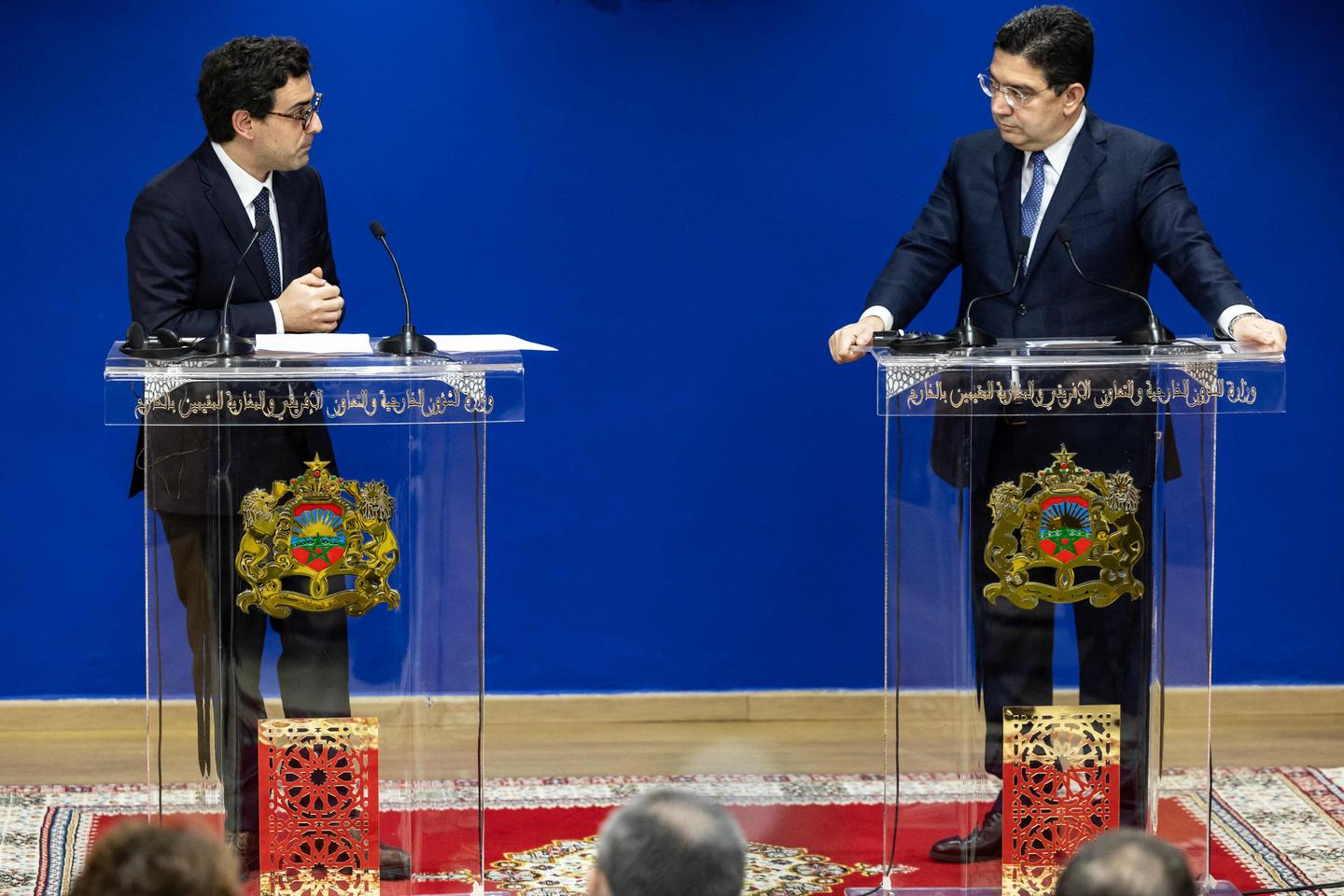


The slow warming of French-Moroccan relations continued in the rain in Rabat. Arriving the day before, on his first ministerial visit to a North African country, French Foreign Minister Stéphane Séjourné spoke with his Moroccan counterpart, Nasser Bourita, on Monday, February 26, before the two gave a joint press briefing. It had been over a year since French and Moroccan diplomatic representatives had engaged in the exercise, the last dating back to December 2022, when Catherine Colonna was the French foreign minister.
Although it symbolizes the reconciliation underway between Paris and Rabat – following the lunch between First Lady Brigitte Macron and King Mohammed VI's three sisters at the Elysée on February 19 – Séjourné's trip was somewhat of a disappointment to Moroccan commentators, who were hoping for some concrete announcements, particularly concerning France's position on the issue of Western Sahara. After the French ambassador to Morocco had stressed the need to "clarify this issue" several days ago, a more favorable French commitment to the North African kingdom was expected, with the Morocco-France Friendship Group in Rabat describing this step as "necessary" if Paris was to retain its status as a privileged partner.
But the step forward did not take place. Although he said he had discussed the matter with Bourita, the French foreign minister limited himself to emphasizing that "Morocco can count on France's clear and constant support" for the autonomy plan proposed by Rabat in 2007. This was merely a reminder of the political position advocated by French diplomacy for over 15 years.
A sensitive issue for Rabat
Without introducing any significant change in terms of substance, Séjourné's statements are no less novel in terms of form. They mark an evolution in the language used by the Foreign Ministry on the subject of Western Sahara. "France knows," said Séjourné, "that the Sahara issue is existential for Morocco." This is the first time that a French foreign minister has publicly acknowledged the kingdom's highly sensitive relationship with the future of this disputed territory, where Morocco and the Algerian-backed Polisario Front have been at loggerheads since 1975. "We've said it before, and I'll say it again today, perhaps even more forcefully: It's time to move forward. I shall see to it personally," he added. His reference to the "provisions of the United Nations Security Council" – which continue to provide for the "self-determination of the people of Western Sahara" – did, however, limit the room for maneuver that France claims on the subject.
You have 48.94% of this article left to read. The rest is for subscribers only.
